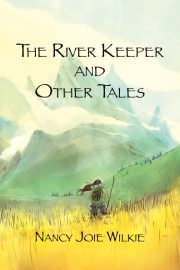Using Poetry to Enhance Your Writing
By Holly Henderson
Poetry can be one of the shortest forms of fiction, but it has the ability to make an outsized impact on the reader. This is especially true when poetry is combined with fantasy and science fiction—both forms aspire to express common concepts in uncommon ways.
From classics like The Lord of the Rings by J.R.R. Tolkien to recent Hugo Award winner A Memory Called Empire by Arkady Martine, poetry has been used throughout the history of speculative fiction to jumpstart brainstorming, enhance worldbuilding, and reinforce themes so they resonate far beyond the last page.
But even meticulously crafted lines won’t mean much if your readers skip right over them.
To Skip, or Not to Skip, That Is the Question
Whether to skip poetic lines is a frequent debate among readers. But for writers, it’s more important to ask why readers skim these passages and how we can address those issues.
Effective Poetry Is Its Own Skill Set
Study poetry as you would any other aspect of your craft. Read collections with a wide variety, such as Chris Riddell’s Poems to… series. Pick apart your favorites to figure out why they work. Explore different forms to expand your horizons beyond the ABAB rhyme scheme.
That being said, you don’t need an MFA in Poetry to incorporate it into your novel. Just like with prose, there’s a lot to be said for writing poetry you like to read. Don’t get caught in the trap of it having to be a certain way to be “right.” One of the most beautiful things about poetry is that it encourages you to break the rules.
It Doesn’t Have to Be Long
As someone who never skims novels, I still consider it when songs in The Lord of the Rings go on and on and on. These lines, while rich, slow the pacing. Try using inherently shorter forms, like the haiku, or condensing longer poetry into the most impactful couplet.
Since poems are typically self-contained, they have to include everything a reader needs to understand them. But you have an entire novel to work with. So, instead of trying to cram all the needed context into the poetic passages, distill what you most want your readers to remember into a few poignant lines and trust your prose to do the rest.
It Doesn’t Have to Rhyme
Rhymes have a unique power to stick in our minds, but rhyming is one tool of many, so don’t restrict yourself. Most prose is contemporary even if the setting is not, and your poetry can be as well. Free verse—poetry without a strict meter or rhyme scheme—has its own cadence, using line breaks to build suspense and create double meanings.
Brainstorming
Even if you don’t want to include poetry in your work, you can still benefit from writing it. Poems can help you get a feel for a longer piece by focusing on the vibes, lore, relationships, or any other aspect as a jumping-off point for your imagination.
Write love poems from one character to another. Create a stanza for each of your three acts, challenging yourself to tell the story in beautifully condensed language. If one of your characters sings, like Dandelion from The Witcher series, imagine what world events would inspire their music.
It doesn’t have to be your own poetry, either. Take a vivid image, emotion, or evocative line from a favorite verse and expand on it. The title for Ursula K. Le Guin’s sci-fi short story “Vaster Than Empires and More Slow” was taken from a line in the poem “To His Coy Mistress” by Andrew Marvell.
Poetry, like worldbuilding, can inspire you, the writer, even if it never shows up on the page.
Worldbuilding
Beginning with nursery rhymes and lullabies, poetry is one of the first ways we experience our culture’s arts, values, history, and folklore. Sci-fi and fantasy authors in particular can use this to our advantage because it provides us with a kind of shorthand while worldbuilding. Readers understand poetry’s broader implications within speculative worlds because they instinctively understand it on their own.
Poetry provides a subtle alternative to info-dumping. What is memorialized in poetry is what people care about most: their struggles and triumphs, the parts of life so big they can’t make sense of otherwise, and the beauty of their every day that they often take for granted.
So create prophecies, absolutely. But also children’s rhymes that innocently tell a bloody history. Suggestive limericks scribbled in the margins of religious texts. Ode mnemonics that help your characters remember how to use their magic or what planet comes next.
For your characters, it’s a part of their life. For your readers, it’s the rich fibers of your world’s tapestry.
Thematic Resonance and Motifs
Utilizing poetry for your themes allows them to be present without being preachy: lines that are full of meaning, even double meanings, without being heavy-handed. Think about what haunts your protagonist. What is vital for them not to forget? What can’t they forget, even if they want to? Take it and make it poetry.
“The Rains of Castamere” from George R.R. Martin’s A Song of Ice and Fire series, becomes a motif that foreshadows death, to greatest effect at a massacre known as the “Red Wedding:” “No one sang the words, but Catelyn knew ‘The Rains of Castamere’ when she heard it.”
That’s the kind of visceral reaction poetry of all sorts can provide. It stokes a desire to hear the words roll off your tongue, to recite them again and again as the meaning grows with every repetition. And what better subject than the theme you’re exploring through your work?
Conclusion
So the next time you’re brainstorming, worldbuilding, or pondering your themes and motifs, try your hand at a poem and see what it unlocks. You might even find yourself writing poetry for the sake of poetry, like Neil Gaiman. As in “Instructions” he says, “Trust dreams. / Trust your heart, and trust your story.”
 Holly Henderson is an award-winning poet, Georgia-based freelance writer, and fantasy novelist. Her articles “Romancing the B Story” and “Using Sensory Triggers to Prime Your Brain for Writing” were previously published by the SFWA Blog. If you’d like to connect, you can find her on Instagram @hollyhenderson.writer.
Holly Henderson is an award-winning poet, Georgia-based freelance writer, and fantasy novelist. Her articles “Romancing the B Story” and “Using Sensory Triggers to Prime Your Brain for Writing” were previously published by the SFWA Blog. If you’d like to connect, you can find her on Instagram @hollyhenderson.writer.


